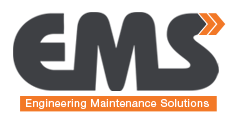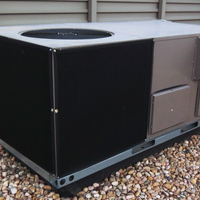AIRFLOW, AIRFLOW, AIRFLOW, AIRFLOW. AIRFLOW is the single most critical element in the correct operation of ALL air heating and cooling systems. Yet most systems do not have the correct airflow. (Read More)
As a result compressors overheat, fans blow hot air and heat exchangers at their heart cannot provide the capacity and comfort that their manufacturers built and designed into them.
Accurate cooling or heating analysis cannot be performed, system performance cannot be measured, and the servicing or commissioning process will be compromised if AIRFLOW is anything but correct. Essentially that is the end of the story, just ask any HVAC manufacturer.
Advertisement - Hover to see more
We heat and cool air, humidify it, dehumidify it, clean it, move it, supply it, return it and try to monitor it.
ALL of these processes are jeopardised if the designed airflow to the system is restricted.
The present economic climate, has caused nationwide cutbacks on staffing and budgets. Fewer staff on site means a reduced capacity for maintenance and servicing. However, the objective of any maintenance team, especially on an emergency call out has not changed.
It is very simple:
- Achieve adequate building cooling or heating.
- Minimise labour time and maximise efficiencies.
- Reduce down time breakdowns.
- Maintain customer satisfaction.
Highly qualified engineers are wasting hours on the environmentally unfriendly, chemical cleaning of coil fins instead of fine tuning and balancing the sensitive air handling systems they are trained to maintain.
Measuring, monitoring and maintaining correct AIRFLOW should be the first step when servicing equipment. It is the key component for proper equipment operation. Energy consumption is dramatically increased when compressors and fans have to work harder to maintain design output and this means big money is needlessly vanishing into thin air.
Also if an expensive compressor needs to be changed and the technician has not fully determined why it failed, the new compressor is sure to fail for the same reasons. In fact, compressors installed by service technicians fail at six to seven times the rate of original equipment.
In most regions of the UK, pollen is a major contributor to the fouling of cooling equipment. This, combined with general debris caused by foliage, refuse and other airborne particulates, can have a significant impact upon the day-to-day running of the equipment.
During the summer months in particular, coil cleaning, changing of internal air filters and general HVAC maintenance must be carried out more frequently, consuming much of the engineering team’s routine PPM schedule.
Humidity control is also an important factor to consider regarding airflow. A lack of humidity control in warm moist environments can lead to mould growth and other moisture-related problems.
For example in commercial kitchens and bathing areas high indoor humidity’s can lead to health and comfort issues.
Most modern air conditioners dehumidify as they cool and this can be seen as the condense water drains away. However, this dehumidification is incidental to their main job of controlling temperature which is dependent on the free flow of the circulating air.
Similarly the correct monitoring of airflow through cooling towers will help to minimise the risk of decaying debris such as insects, seeds and pollen forming a nutrient source for the legionella bacteria. According to the Health and Safety Executive, 90% of outbreaks have their root causes in failures to identify risk and to put in place effective schemes to control and deal with these risks.
These are most commonly:
- Departures from planned maintenance and cleaning schedules
- Changes in process, affecting the risk or rendering existing precautions ineffective
- Staff contractor changes
- Intermittent use of plant (VERY IMPORTANT FOR IDLE EQUIPMENT)
- Unusual weather conditions –particularly dangerous during long high ambient temperatures.
It has always been very difficult to add filtration to cooling equipment (water and dry air cooled), small condensers and cooling towers. Until now.
RABScreen external filtration now provides a solution to air intake debris, contaminated coils and clogged cooling tower sumps. RABScreens improve efficiency and save money.
For details of the external protection provided by RABScreen view our
website www.rabscreen.com
or call 01635 248633 for a free site survey.





